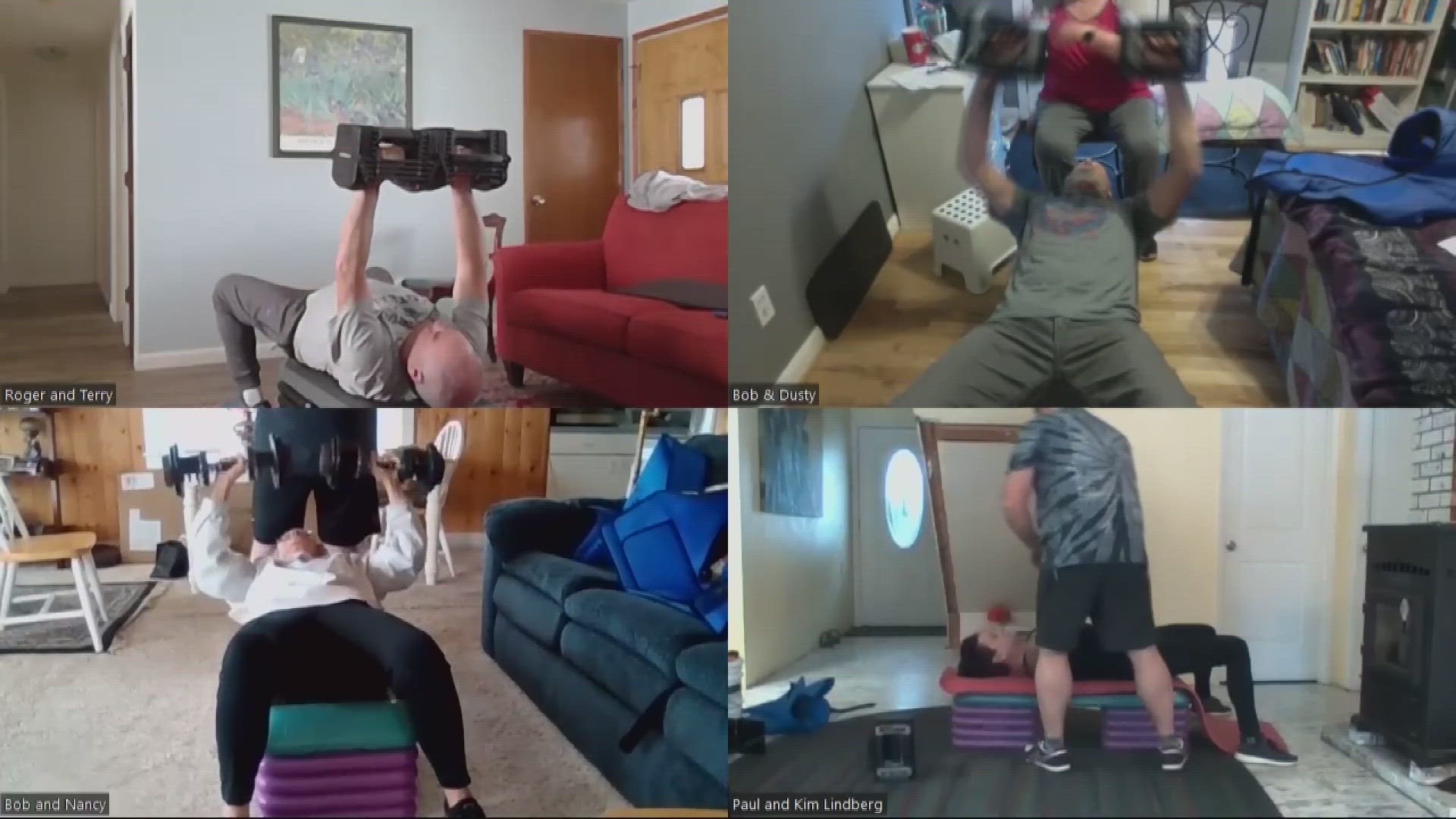PORTLAND, Ore. — Research has made it clear; exercising is safe both during and after cancer treatment. Now a research trial at OHSU is seeing promising results in overall health for cancer fighters and their partners.
It's called Exercising Together, a research study designed to learn whether and how exercise can benefit prostate, breast or colorectal cancer survivors and their partners.
“The couple kind of become training partners for one another, and so one partner is exercising and training and the other,” said Dr. Kerri Winters-Stone, OHSU professor with the Division of Oncological Sciences.
Exercising Together is a first-of-its-kind study. It has cancer patients and survivors working out with their significant others two times a week for six months. The program went virtual during the pandemic, opening it up to even more couples in other parts of the country. About 260 couples have enrolled.
“If the patient gets healthier, the spouse gets healthier, and then their relationship gets stronger and that really maximizes the long-term health for that couple,” Dr. Winters-Stone said.
The program has already seen positive outcomes in participants, including couples like Paul and Kim Lindberg, and Paul and Helene Rippey.
“I was very lucky. I thought it was just an unexpected, weird treat to be invited into this program,” Paul Rippey said.
“It’s been really good for us to have that experience of working out together,” Paul Lindberg said.
Both men were diagnosed with prostate cancer and underwent surgery early in the pandemic.
“I’m one of the lucky ones,” Lindberg said. “I’m cancer-free and all signs are that I’m likely to stay that way. In fact, I got fired from my oncologist a few months ago.”
These couples said that they hadn’t really exercised together much before this. The Exercising Together trial has not only changed their bodies but their attitude too.
“I was surrendering to aging. I thought, 'My knees are going. I’m 72 years old. This is normal. I can’t get down and back up very easily,'” Helene Rippey said. “I can do that now. I can get down and back up pretty easily and I can lift heavy things.”
Strengthening partners
Not only does the study look at physical health markers, but also emotional health — reducing anxiety and the health of the couples’ relationships.
“Relationships get strained when a couple goes through a chronic illness together,” Dr. Winters-Stone said. “Their expectations of what their life is going to be like as a couple changes, the way they have to navigate and work together as they go through dealing with the chronic illness from the time of diagnosis through treatment and even afterward, puts a lot of strain on the couple.”
In the program, each couple was given workout gear, weights, mats and other equipment. Each workout is led by a coach, but it’s really the couples who give each other personal training.
Some of the exercises have them working out simultaneously; for others, each partner does the move one at a time. That means there is plenty of encouragement, and the couples are told to watch the others’ form, correcting them when need be.
These couples reported that the teamwork aspect kept them accountable and safe.
“I might be tempted to say, ‘That’s it, I’m at the point of fatigue,’ but I can’t get away with that because she’ll know,” Paul Lindberg said, looking at his wife Kim.
Kim replied with a grin, and a "Yep!”
Not only is this program helping the couples build up strength and energy, but it is also bringing them closer to their significant other.
“To take correction and mutually correct each other … instead of criticism, instead of holding it as criticism, you hold it as support,” Helene said. “And that just carries over into all of life now.”
The Exercising Together trial really looks at what Dr. Winters Stone calls a biopsychosocial link to health: biology, psychology and social function.
“We're talking about someone’s overall health and well-being,” she said.
The Rippeys and Lindbergs are part of the final group in this trial program, which Winters-Stone said could change the way exercise is included in cancer care in the future. The hope is to make this type of program available to even more people in the future.
“We do exercises where they have to coordinate together to do the exercise, and so it's another level of collaboration and communication and support, as well as fun,” Winters-Stone said.
You can visit the link here to check out more of Dr. Winters-Stone’s research on exercise and cancer.

